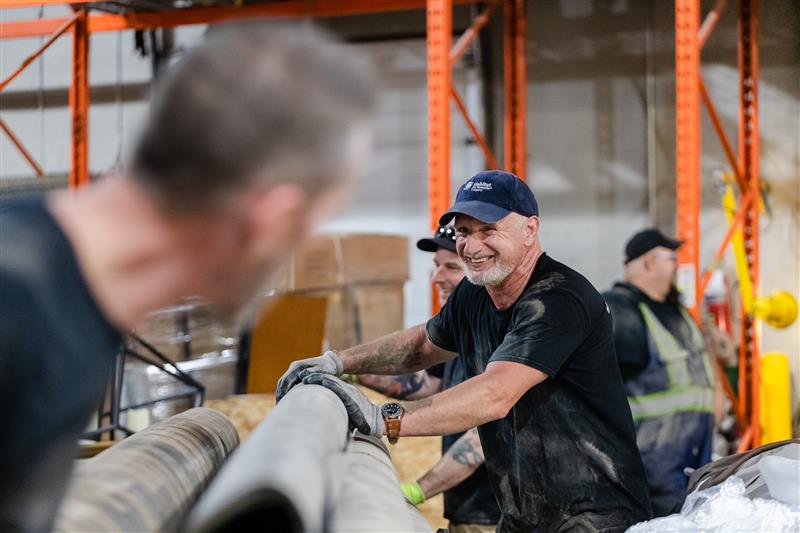Habitat for Humanity ReStores are community hubs powered by volunteers, employees and donors. To ensure these spaces remain safe, efficient and welcoming, affiliates must prioritize three core areas: maintenance, worker safety and inventory management.
Drawing from guidance from Lockton Affinity, administrator of the Habitat for Humanity Affiliate Insurance Program, here’s a comprehensive look at how to elevate your ReStore operations.

Proactive Maintenance for a Safer Environment
Routine maintenance is the foundation of a safe and successful ReStore. Affiliates are encouraged to conduct regular self-inspections with diverse teams to identify hazards such as loose tiles, poor lighting or malfunctioning fire and carbon monoxide detectors.
Consider these key maintenance practices:
- Hang clear safety signage to reduce accidents and legal risks.
- Ensure adequate lighting in all areas, including restrooms and outdoor spaces.
- Plan for emergencies with posted evacuation routes and regular drills.
- Check for functional smoke and carbon monoxide detectors, with routine battery replacement.
- Follow proper inventory storage, avoiding high shelving for heavy items and ensuring aisles are not overcrowded.
These steps not only protect people but also enhance the shopping experience and operational efficiency. Explore additional ReStore maintenance tips here.
Enhancing Worker Safety at ReStores
Safety isn’t just about your building maintenance. It’s also about the people inside. Whether on a jobsite or in a ReStore, affiliates must foster a culture of safety through training, equipment and communication.
To prevent employee, volunteer and customer injuries, be sure to:
- Immediately clean spills and post proper wet floor signage.
- Follow regular sanitation to prevent illness.
- Mandate the use of proper footwear and other PPE.
- Provide training on safe lifting techniques and encourage teamwork for heavy items.
- Ensure first aid kits are accessible and well stocked.
See employee and volunteer protection tips for jobsites, too.
Smart Inventory Management to Minimize Risk
Inventory is both an asset and a potential liability. Affiliates must manage it with care to avoid damage, injury or loss.
- Avoid long-term outdoor storage, especially in unpredictable weather conditions.
- Keep indoor storage safe by placing heavy items on lower shelves and avoiding overcrowding.
- Ensure donation drop-off signage is clear to prevent customer access to unsafe areas.
- Take insurance considerations into account, including determining actual cash value and maintaining logs or visual records of inventory.
Continue reading about smart inventory management.
Additional Support for ReStore Maintenance, Safety and Inventory Management
By integrating these maintenance, safety and inventory practices, Habitat for Humanity affiliates can create ReStores that are not only functional but also safe and welcoming.
Lockton Affinity’s resources — from safety courses to insurance guidance — offer affiliates the tools affiliates need to protect their people, property and inventory.
Explore additional safety resources to protect your Restore today.





